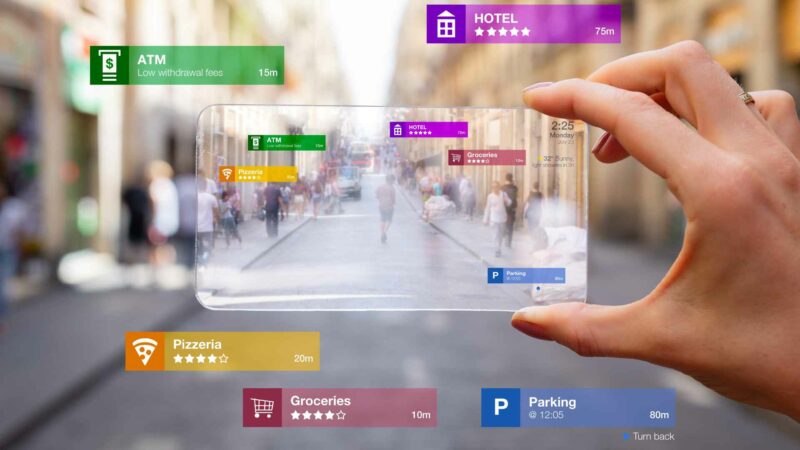Most consumers still think artificial intelligence is a mere fad. That no longer remains the case. AI in retail drove an estimated $40 billion of extra revenue in 3 years.
It’s changing how businesses connect with consumers and streamlining operations. As a result, AI is reshaping the landscape of retail itself.
Of course, plenty of businesses are catching on, and for good reason. It’s better to jump in now to stay ahead of the competition.
Do you want to be a part of this retail revolution? If so, then read on to find out more!
Early Footprints of AI
Data is the silent architect shaping the blueprint for progress. It’s how we can tell that Johnny prefers mint ice cream. And once you do that for the sea of other people, you start to see trends and can target them as they happen.
It’s important to note that there is a difference between automation and AI. Many throw those terms together without knowing the difference.
Automation can integrate with AI. That said, automation uses software for the transportation of data. AI’s purpose is to “think” like a human.
We can thank the world of science fiction for the concept of artificial intelligence. Remember The Wizard of Oz? There was a “heartless” tin man.
By the 1950s, scientists, mathematicians, and philosophers had all embraced artificial intelligence (AI). The computers had to change fundamentally, which cut short their enthusiasm.
There was a flurry of setbacks from 1957-1974. Fast forward to the 1990s and 2000s, and we accomplished most of the goals we set out to do. IBM’s Deep Blue defeated Gary Kasparov, the world chess champion in 1997.
The Key Applications of AI in Retail

In retail, shopping is an adventure (or it should be). Retail AI is a digital friend that can act as a guide to help both shoppers and sellers.
Retail Customer Experience
Ever felt amazed when a store suggests something you love? That’s AI personalization at work!
It studies what you enjoy and suggests products tailored to you. It’s like having a magical shopping assistant who knows your style and taste.
Imagine a store that knows you so well that it changes its look and offerings based on your preferences. Pretty cool, right? That’s possible!
And while it’s not a thing right now, smart glasses in the future might be the norm. Why is that important? It’s because those glasses can use augmented reality to enhance how we shop.
Retail Analytics
Retail AI doesn’t guess. It’s like a detective that looks at several clues (data) to solve a mystery (what people want).
By studying what shoppers buy and when, AI helps stores stock up on the right stuff. It’s like having a crystal ball that helps predict what people want.
AI Efficiency
Have you ever wondered how stores keep track of so many things? Well, automation has pulled the ropes for a while. Now that AI is in the picture, things can speed up faster than before.
It’s like having a super smart robot that keeps track of everything in the store. That way, they never run out of your favorite snacks or toys as long as said supply exists.
AI In Retail: Future Trends

Retail spaces in malls are on the cusp of a revolution, with AI at its core. As property managers and developers, understanding these transformative trends is crucial to ensuring mall spaces remain enticing, efficient, and ahead of the curve.
Space Optimization Through Intelligent Analysis
Historically, the layout of mall retail spaces has been more art than science. However, with AI, we’re entering an era where every square foot can be optimized based on real-time data.
By analyzing foot traffic, dwell times, and purchasing behaviors, AI can provide insights on how to best arrange store layouts, position anchor tenants, and even dictate the flow of mall traffic. This means maximized revenue potential and a tailored shopping experience for every visitor.
Seamless Integration of Offline and Online
With AI, the lines between offline mall shopping and online e-commerce blur. Imagine mall spaces that use AI to interact with shoppers’ smartphones, providing personalized deals or guiding them to stores that match their online browsing habits.
Furthermore, it’s about leveraging AI to understand how online behaviors influence offline foot traffic. This knowledge allows property managers to strategize tenant mix, promotional events, and more.
Enhanced Facility Management Through Predictive Analysis
From HVAC systems to lighting, the operational costs of mall retail spaces can be extensive. AI brings the promise of predictive maintenance, where systems self-diagnose potential issues and schedule maintenance, reducing downtime and saving costs. Moreover, by analyzing peak traffic times, AI can optimize energy consumption, ensuring malls are green and cost-efficient.
Potential Use Cases
AI and ML are changing retail, with uses throughout the entire value chain. You can divide the value chain into three main stages.
On the Shelf
This stage includes product management, such as demand forecasting and pricing optimization. Retailers can use AI/ML to predict product demand. This helps optimize inventory levels and avoids stockouts or overstocking.
AI/ML can also optimize pricing by setting prices that are more likely to appeal to customers. This optimization leads to maximizing profits.
In the Store
This stage includes merchandising and assortment, as well as customer service. AI and ML can help retailers boost store sales by showing products based on what customers like.
It can help with customer service. Chatbots use AI/ML to answer questions and solve problems fast.
Logistics and Delivery
This stage includes order fulfillment and delivery. AI and ML can use efficient shipping to send orders to the best warehouses. It can also improve delivery by letting customers track and see when packages arrive.
AI/ML has the potential to go beyond the three main stages of the retail value chain. It can help with fraud detection, market research, and product development.
Start Using AI in Your Retail Now
Now that we have gone through ai in retail, you should have a better grasp of the ins and outs of the uses. And this is only the beginning.
Don’t expect things to stay the same. As advancements continue, we will have more use cases and refine the current ones.
Do you have any thoughts or questions you would like to share? If so, then contact us and we’ll be happy to answer them.
Want to Learn More About AI In Retail?
Contact us if you want to learn more or have any questions about AI and how it is changing the retail industry.
Contact Us

Aaron Hockel is a Partner and the VP of Digital Marketing at AltaVista Strategic Partners. A University of Maryland, Baltimore County (UMBC) alumnus, Aaron expertly crafts digital marketing strategies that drive success for clients, leveraging his deep industry knowledge and innovative approach.


